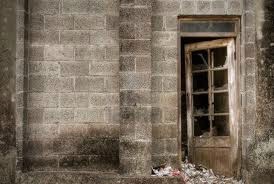OrdinaryTimes 1.45-2ndOrderWarrior

He tells terrific, heartbreaking stories of well-intended but ignorant first-order warriors. He recalls how the Iraqi Reconstruction effort built a power station several times before some second-order warrior thought to sit down with the local chieftains to ask what they wanted. “If you rebuild the plant over there,” one village elder reported, “We’ll just have to blow it up because that’s another tribe’s territory. If you build it over here, they’ll just have to blow it up because it’ll be on our property. We’ve been at war for generations. This is a matter of pride.” The second-order warrior, rather late in this game, identified some neutral ground that could support a shared resource between the warring parties. The next plant was never blown up.
Lowell says we’d build schools which failed to satisfy the local meaning of school, where a school is not a building so much as a meaningful gathering place, perhaps beneath a tree. The school buildings were quickly sabotaged, and should have been. When, he wonders, will we ever learn?
His latest project was in West Africa, where Jihadists from Egypt and Pakistan were moving in. He explains that these people are Muslim, but not the same sort of Muslim as the locals. The rebels insisted upon staying in the local mosque, where they undoubtedly intended to start preaching a different interpretation of scripture than the locals learned. To the locals, learning was seen as a way to look out a window or open a door which could then be stepped through. To the more conservative rebels, learning was about reading what was written on a wall. No window to see through. No doorway to step through.
The local leader refused to give his permission to the rebels. “We do not stay in the mosque. Nobody stays in our mosque. If you want to visit here, you will be my guest, in my home.” The Jihadists left the village the next day.
That leader was a second-order warrior. He knew that the armed insurrection was mere smokescreen in the real battle, the one intended to shift the meanings his tribe had respected for eons. The funding was cut for Lowell’s project to encourage this sort of resilience within those embattled local cultures, cut in favor of targeted drone strikes. The difficulty, as a heartbroken Lowell explains it, revolves around the DoD’s real need to keep score. It’s straightforward to count drone hits; much more difficult to measure the relative resilience of a culture. The rub, of course, might be that first-order drone strikes undermine the more fundamental second-order resilience. In Lowell’s words, “Every drone strike counts as a win for the terrorists, who are engaging in second-order warfare.” The auditors don’t get this subtlety.
Something about bombs and bullets encourages an autistic response. No relationship, no acknowledgement of shared humanity. Push begets shove; shove, push. Of course it’s first-order insanity to engage in active meaning-making with a confirmed and dedicated enemy, even if that enemy engages at the second order. This creates a dandy double bind where the smokescreen becomes the very lens we perceive through. Then, we can only count the bangs and tally the score, believing we’re whipping their butts until no more meaningful ifs, ands, or buts remain.<
p>©2013 by David A. Schmaltz - all rights reserved


